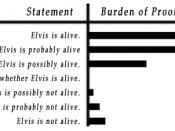Civil law is concerned and deals with the relationship between individuals and relates to civil rather than criminal wrongs with the aim of compensating the suing party for such wrongs (Gibson, Rigby, Ryan & Tamsitt, 2001, p28.1). A civil action is generally brought by the party who has been injured or otherwise suffered some form of loss as the result of a wrong which only directly affected him (e.g. trespassing into private property). When a civil law is broken, legal action is brought by an individual against another for some form of legal remedy, e.g. damages. In civil suits, the party initiating legal proceedings is referred to as the plaintiff and the party being sued is called the defendant. For a plaintiff to successfully seek damages from the defendant he or she needs to prove their case, this is called the burden of proof. The amount of proof required by the law is called the standard of proof and in civil cases the standard of proof is assessed on the balance of probabilities (Dowler & Miles, 2001, p.32).
Private security officers working in an organisation have limited powers when compared with public police officers. In most instances the private security officer only possesses the power of citizen?s arrest. In most civil actions, especially those involving private security officers, the basis is not on intended harm but a claim that the defendant was negligent (Purpura, 1998, p 61). Negligence is defined as the liability for breach of a duty to take reasonable care (Gardiner & McGlone, 1998, p 8). Security managers in organisations should take necessary action to ensure the safety and security of individual on their premise. There have been countless lawsuits against the management of organisations for failing to provide adequate protection for it stakeholders. An example of such...


